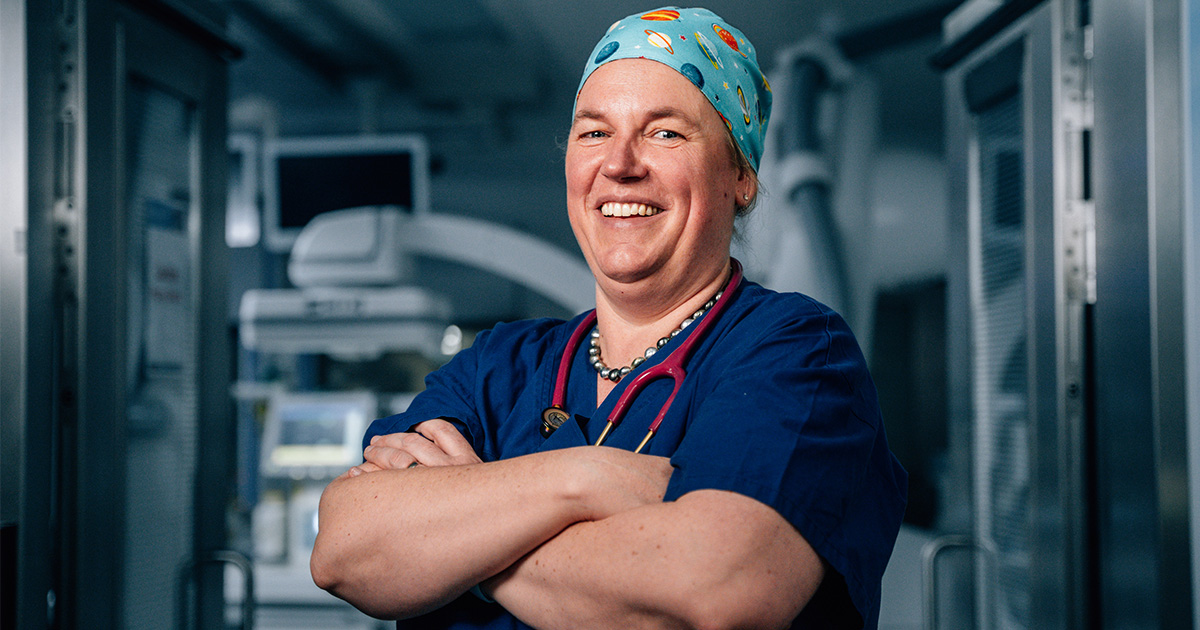Search
Research
Penicillin allergy SHACK: Survey of hospital and community knowledgePenicillin allergy accounts for the majority of all reported adverse drug reactions in adults and children. Foregoing first-line antibiotic therapy due to penicillin allergy label is associated with an increased prevalence of infections by resistant organisms and longer hospitalisation.
Research
Aerosolized drug delivery in awake and anesthetized children to treat bronchospasmBronchospasm is a common respiratory adverse event in pediatric anesthesia. First-line treatment commonly includes inhaled salbutamol. This review focuses on the current best practice to deliver aerosolized medications to awake as well as anesthetized pediatric patients and discusses the advantages and disadvantages of various administration techniques.
Research
Without training, they lacked knowledge. Without knowledge, they lacked confidence. Without confidence, they lacked victory (Julius Caesar)Britta Regli-von Ungern-Sternberg AM FAHMS MD, PhD, DEAA, FANZA Chair of Paediatric anaesthesia, University of Western Australia; Consultant
Research
Difficult or impossible facemask ventilation in children with difficult tracheal intubation: a retrospective analysis of the PeDI registryDifficult facemask ventilation is perilous in children whose tracheas are difficult to intubate. We hypothesised that certain physical characteristics and anaesthetic factors are associated with difficult mask ventilation in paediatric patients who also had difficult tracheal intubation.
Research
Airway management in neonates and infants: European Society of Anaesthesiology and Intensive Care and British Journal of Anaesthesia joint guidelinesAirway management is required during general anaesthesia and is essential for life-threatening conditions such as cardiopulmonary resuscitation. Evidence from recent trials indicates a high incidence of critical events during airway management, especially in neonates or infants. It is important to define the optimal techniques and strategies for airway management in these groups.
Research
A survey of the global impact of COVID-19 on the practice of pediatric anesthesia: A study from the pediatric anesthesia COVID-19 Collaborative GroupPediatric anesthesiology has been greatly impacted by COVID-19 in the delivery of care to patients and to the individual providers. With this study, we sought to survey pediatric centers and highlight the variations in care related to perioperative medicine during the COVID-19 pandemic, including the availability of protective equipment, the practice of pediatric anesthesia, and economic impact.
Research
Pediatric Airway Management in Times of COVID-19-a Review of the Evidence and ControversiesThis review summarizes and provides a comprehensive narrative synthesis of the current evidence on pediatric airway management during the COVID-19 pandemic.
Research
Is there a role for lung-protective ventilation in healthy children?Lung-protective ventilation (LPV) has been adopted in the theater environment as a strategy to reduce pulmonary complications under anesthesia. Postoperative pulmonary complications are not infrequent and may have significant implications on the postoperative length of stay as well as the morbidity and mortality of pediatric patients.
Research
Parents' perspectives towards paediatric confectionary masked medications: a qualitative studyThe availability of age-appropriate, taste-masked oral solid medications for the paediatric population is currently inadequate. We have developed a novel chocolate-based drug delivery platform to taste-mask bitter drugs commonly utilised in the hospital setting, but there is limited evidence regarding parent's perspectives on these medications.

News & Events
Prime Minister’s Prize for pioneering WA anaesthetistCongratulations to trailblazing Western Australian paediatric anaesthetist and researcher Professor Britta Regli-von Ungern-Sternberg, who has been awarded a prestigious Prime Minister’s Prize for Science for globally influential research that has made surgery and recovery safer for babies and children.
